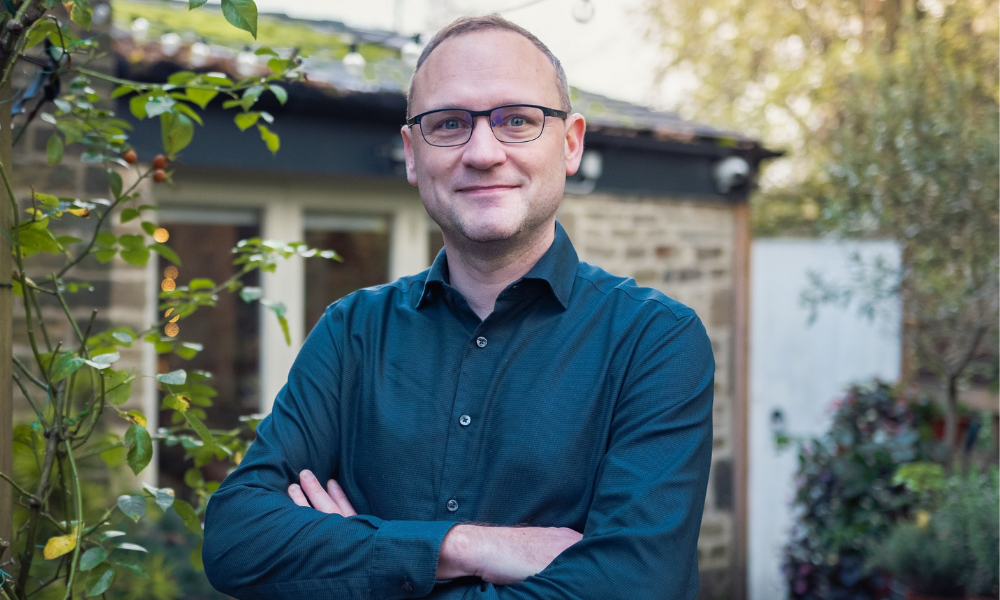"No one organisation can do it on their own"

Achieving net zero by 2028 for all privately rented properties will be “a huge task” requiring the involvement of every stakeholder in the housing industry as well as the government, according to Kris Brewster (pictured), chief commercial officer at the Skipton Building Society.
Speaking shortly after the launch of Skipton’s new scheme to help landlords meet EPC ‘C’ rating requirements in time for 2025, he said: “It’s a huge task. It’s a multi-decade, wicked problem for society to solve and no one organisation can do it on their own.
“(To achieve this) we want to work with government, house builders, energy companies, homeowners, tenants, local authorities, planners and all the stakeholders, because it’s only by having everyone working together that we can make lots of small steps that really add up to start building the momentum and creating the change that’s needed.”
Skipton has said it is prepared to invest £11 million towards greening UK homes over the next few years by giving all its mortgage customers, including buy-to-let landlords, a free EPC Plus assessment and report.
Together with property management company Vibrant, Skipton will offer landlords with multiple properties a free EPC+ report to 10 of their homes in a bid to make them more energy efficient.
The report will involve a visit by a qualified EPC surveyor, who will check the property’s efficiency rating. If it fails to achieve a ‘C’, the surveyor will list up to five different recommendations on how to improve the home’s energy efficiency, such as insulating floors, installing solar panels or an energy efficient boiler.
If it’s the latter the surveyor will list the pros and cons of fitting a ground source versus an air source heat pump (ground source heat pumps are more effective but can often cost more than double).
Brewster said the scheme was just “one piece of the puzzle”, acknowledging that getting UK homes to comply with the rules will be extremely costly and complex, partly due to the fact that the country’s housing stock is one of the oldest and among the least well insulated in Western Europe.
According to a Eurostat study, more than one third of the housing stock in the UK was built before 1946. And while almost all homes built since 2012 in England and Wales have a high energy efficiency rating, the figure plumets in homes built before 1900, to just 12% in England and 8% in Wales.
A 2020 study showed that a typical UK home with an internal temperature of 20 degrees Celsius and an external temperature of zero loses three degrees of heat in five hours, far more than typical homes in other EU nations.
To make matters worse, home insulations in the UK have dropped by 50% this year following the government’s decision to scrap its flagship green homes grant scheme after just six months.
Brewster said: “We know that the cost of retrofitting is pretty enormous and eyewatering, so it’s really important that we try and maintain a really fair and just transition to a greener state - we need to make sure we don’t end up with a market where there’s a two-tier housing system.”
Brewster stressed the importance of scalability and ensuring that advances in technology became mainstream in order to lower costs.
Read more: Median homes failing EPC C rating, ONS data shows
“When things tip into the mainstream, they become a ‘win-win’,” he said. “There’s a lot of talk about air source and ground source and that’s technology that needs to develop as it’s very expensive. It will green your home but won’t necessarily save you any money on your energy bills.
“You get a ‘win-win’ when you can green your home and save money. You don’t really see any conversation about home batteries, but the economics on a solar system with a home battery charging up through the day when it’s light and using the battery in the evening works really well, alongside some practical solutions that are available now,” he said, pointing out that in his view home insulation in ceilings was the most affordable and effective way “to kick things off” with technology.
“But we need to start scaling that up because as people adopt it, prices come down and then the maths and the ‘win-win’ starts to happen,” he added.
According to the ‘eco experts’ website, home insulation typically costs between £1,400 and £10,000, while installing solar panels can vary between £5,000 and £11,000, depending on the size of the home.
In any case, Brewster was clear that the time to make important decisions was now.
“I see lots of glossy reports. I see lots of people having meetings, and we’ve done that, but actually what needs to take place is some action and some investment and that’s what we’re doing because that’s what will make the change happen,” he said.
“At Skipton, we want to play a leading role in greening UK housing. It is a hugely important part of a well-functioning housing market. We didn’t want to just do this purely for our residential members – we want to play a bigger role than that to help the wider private rental sector as well.”



